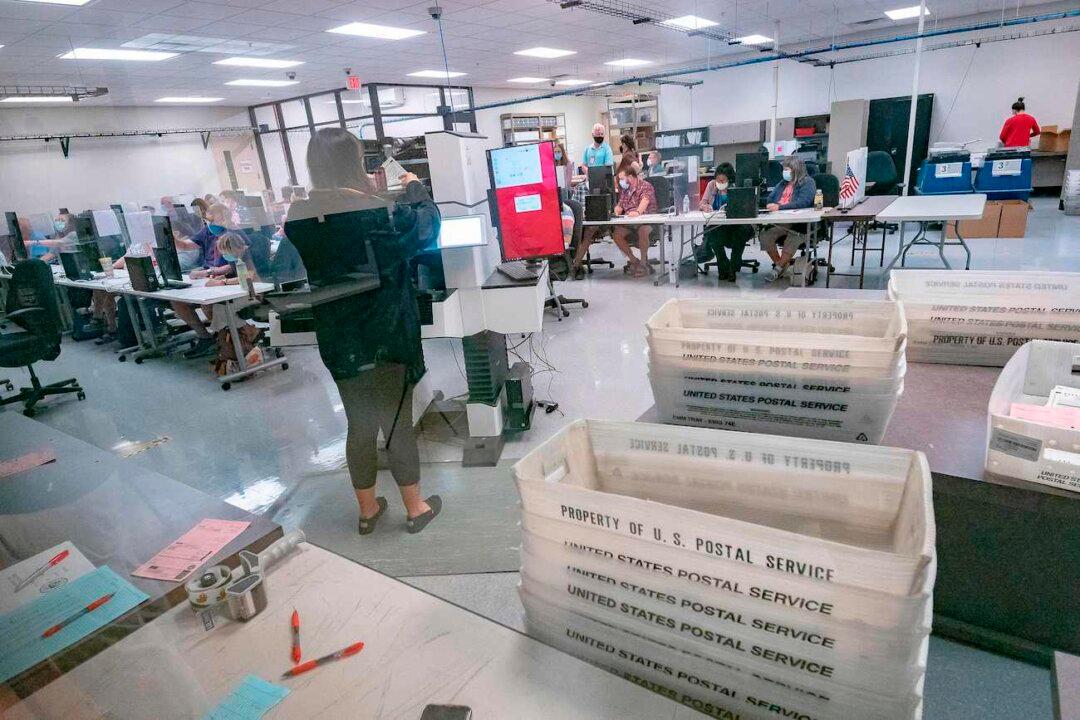A county judge in Arizona on Nov. 30 ruled that the state’s Republican Party can inspect a sampling of mail-in ballot envelopes and a selection of ballots that were duplicated from originals.
Maricopa Superior Court Judge Randall Warner said the party can examine 100 mail-in ballot envelopes, or images of them, selected at random by election officials, and compare them to voter signatures on file.





